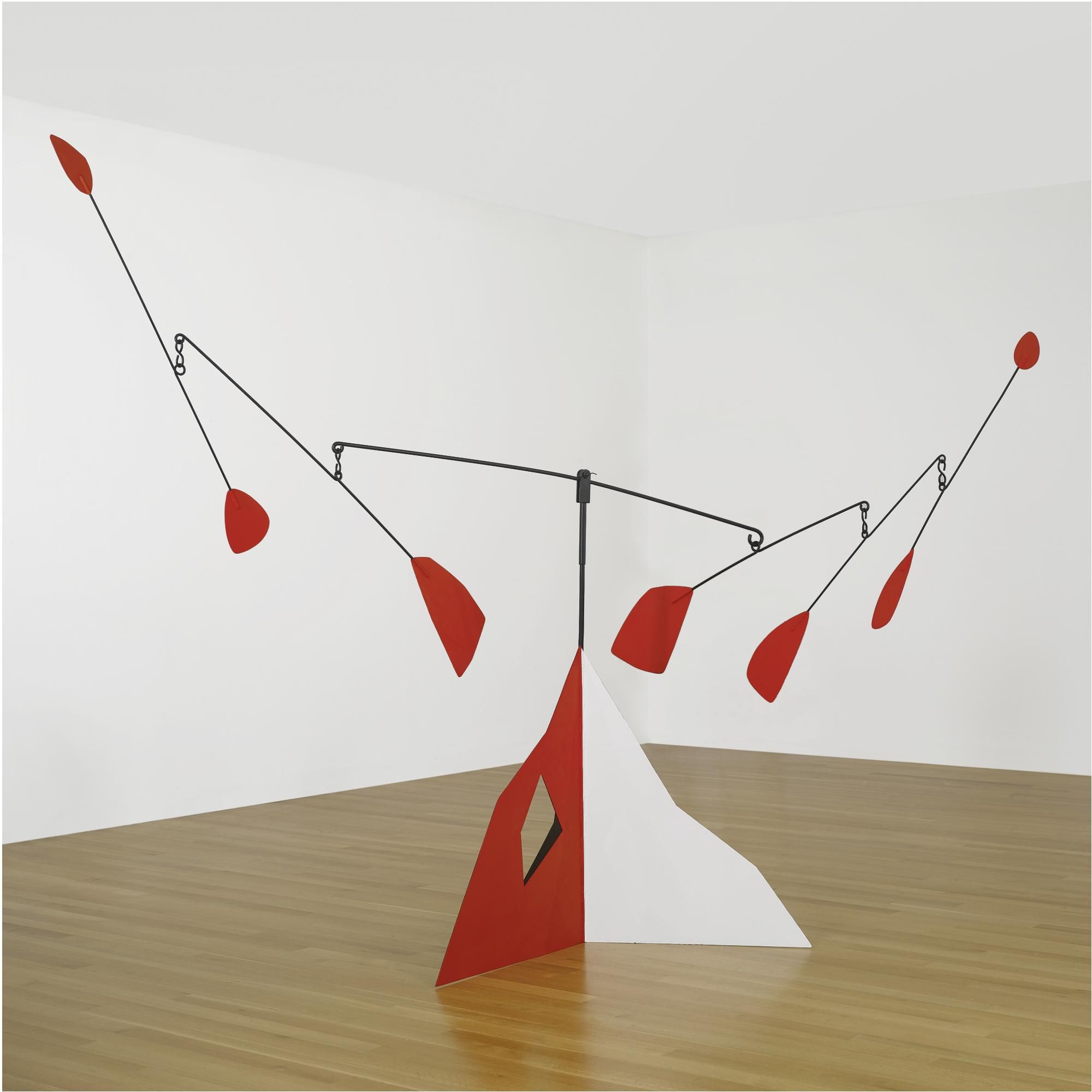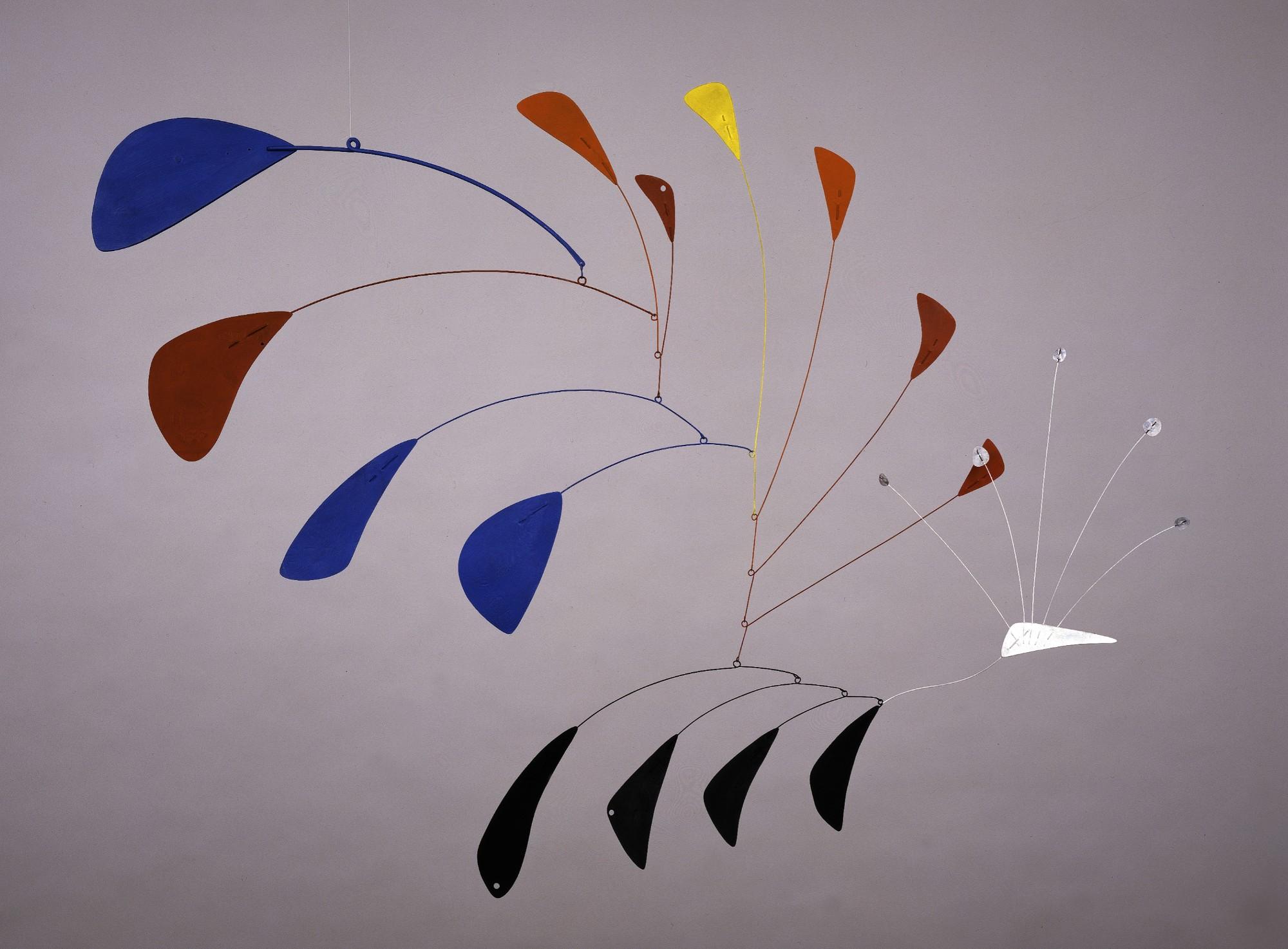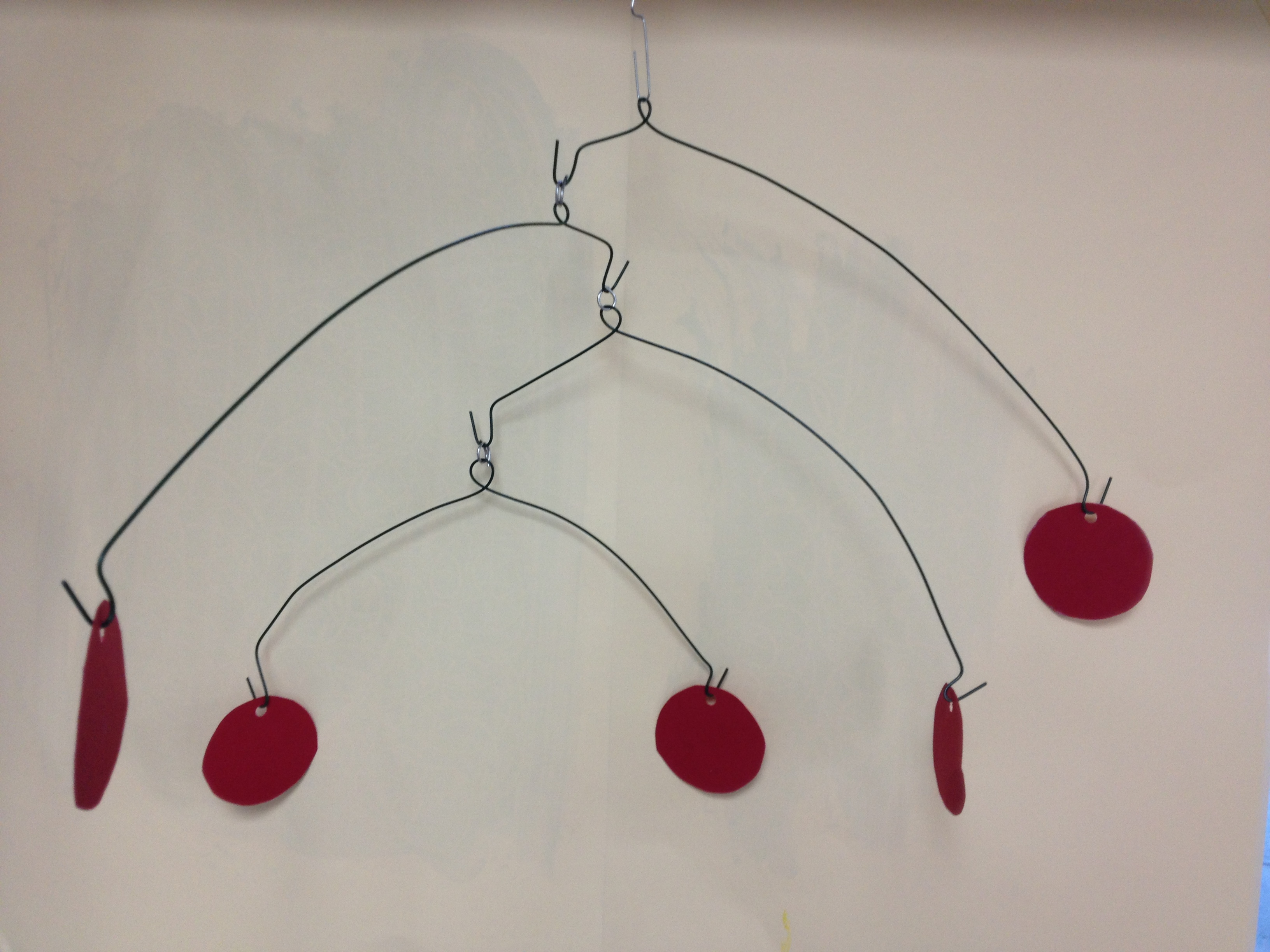
Alexander calder, Modern art, Mobile art
Alexander Calder (1898-1976), whose career spanned more than half a century, continued to reinvent himself well into the later decades of his life. His work was always about motion, literally.

Alexander Calder Mobile du Garage MutualArt
Alexander Calder ( / ˈkɔːldər /; July 22, 1898 - November 11, 1976) was an American sculptor known both for his innovative mobiles (kinetic sculptures powered by motors or air currents) that embrace chance in their aesthetic, his static "stabiles", and his monumental public sculptures. [1]

Alexander Calder (American, 18981976) Untitled (Standing Mobile, c. 1965) Mobile Sculpture
Helly Nahmad (born circa 1978) is an American art dealer and art collector. In 2000, he founded the Helly Nahmad Gallery in Manhattan, New York, which holds several fine art exhibitions each year featuring artists such as Pablo Picasso, Chaïm Soutine, Francis Bacon, and Giorgio de Chirico.. In 2014, he was sentenced to 12 months in prison (and served four) after pleading guilty to a federal.

Alexander Calder (American, 18981976) Untitled (Standing Mobile, c. 1965) Alexander calder
American artist Alexander Calder (1898-1976) is celebrated for revolutionizing sculpture with his renowned mobiles and stabiles, which range from the miniature to the monumental. This exhibition traces Calder's career, highlighting his most important themes, styles, and materials from the 1920s through the 1970s.

An Alexander Calder mobile. A classic mid century sculpture!
How Artists Are Challenging Alexander Calder's Mobiles So dominant were his dangling masterpieces that others avoided the form, but now, enough time has passed for others to sway beside him..

Alexander Calder, Mobile ’73 Alexander calder, Calder mobile, Calder
Alexander Calder has become synonymous with moving sculptures, or as they are famously known, mobiles. He epitomized movement in art and made it playful and abstract. His art was diverse and moved in a myriad of fashions, both figuratively and literally, in the air and on land. Some also stood still.

Pin by Jonathan Milton on Art Ideas Calder mobile, Alexander calder, Calder
Alexander Calder (; July 22, 1898 - November 11, 1976) was an American sculptor known both for his innovative mobiles (kinetic sculptures powered by motors or air currents) that embrace chance in their aesthetic, his static "stabiles", and his monumental public sculptures.

Alexander Calder Mobile Sculptures Alexander Calder; Standing Mobile; circa 1940; steel wire
Between the 1920s and '30s, Calder regularly made long study and work trips to Paris, where he began to participate in the Abstraction-Création group.Finally, in 1932, at the Galleria Vignon - owned by Marie Cuttolì, an avant-garde collector - he exhibited for the first time, presenting thirty mobile works that were to pave the way for other mobiles to come.
:max_bytes(150000):strip_icc()/alexander-calder-mobile-5b33c1c746e0fb00374c6e5a.jpg)
Life of Alexander Calder, Sculptor of Massive Mobiles
Lynne Warren Alexander Calder - Mobiles, Stabiles, Sculptures: In 1931 Calder married Louisa James, a grandniece of author Henry James; the couple eventually had two children, Sandra and Mary. By mid-1933 Calder had returned to New York City.

Speedboys Alexander Calder mobile sculptures
L01686 Display caption By suspending forms that move with the flow of air, Calder revolutionised sculpture. Marcel Duchamp dubbed these works ' mobiles '. Rather than a solid object of mass and weight, they continually redefine the space around them as they move.

Untitled Mobile art, Sculpture art, Alexander calder
Trained as a mechanical engineer, Alexander Calder revolutionized the world of kinetic sculpture with his suspended and standing mobiles (a name coined by Calder's friend and peer, Marcel Duchamp ). In 1932, bored by the monotony of mechanized movement, Calder introduced a new element of chance to his mobiles.

The Calder Mobiles that Asked to be Touched Art & Object
Alexander Calder's monumental mobile moves solely on the air currents in the East Building's Central Court. The sculptor originally intended the work to have a motor, but the use of advanced, lightweight materials made this unnecessary.
Kaylovesvintage Alexander Calder
by The Metropolitan Museum of Art. How Alexander Calder's "Mobile" injects motion into sculpture | Art, Explained. Share. Watch on. Video from The Metropolitan Museum of Art. Cite this page as: The Metropolitan Museum of Art, "Alexander Calder, Mobile," in Smarthistory, January 27, 2016, accessed December 29, 2023, https://smarthistory.org.

How to Make a Calder Mobile K 6 ArtK 6 Art
Official Website: https://to.pbs.org/3f5Lkw3 | #AntiquesRoadshowCheck out the mind-blowing updated value on this treasure made by the master of the mobile, A.

'Mobile', Alexander Calder Tate
Alexander Calder, known to many as 'Sandy', was an American sculptor from Pennsylvania. He was the son of well-known sculptor Alexander Stirling Calder, and his grandfather and mother were also successful artists. Alexander Calder is known for inventing wire sculptures and the mobile, a type of kinetic art which relied on careful weighting.
Calder at Pace London April 19th June 1st 2013
Calder's Mobile Breathes Life into the East Building. A site-specific commission created to open the National Gallery's East Building in 1978, Calder's 76-by-30-foot mobile is at the heart—or, perhaps better put, the respiratory system—of the East Building. High in the four-story atrium, the red, blue, and black wonder softly soars.